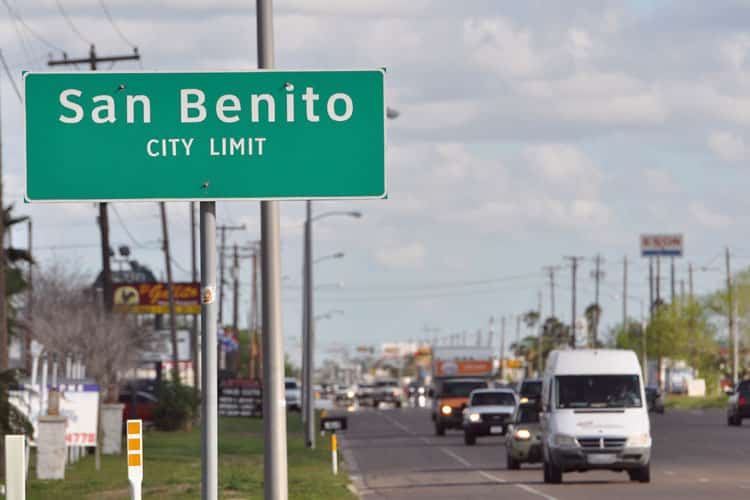|
Only have a minute? Listen instead
Getting your Trinity Audio player ready...
|

SAN BENITO — Between 2009 to 2010, the city’s aging sewer plant was belching out a series of sewage spills along the banks of the Arroyo Colorado, sparking one of San Benito’s biggest projects in decades.
Facing severe state fines and costly corrective action, in 2012 city officials entered into a pact with the Texas Commission on Environmental Quality, or TCEQ, which agreed to waive penalties in exchange for the city’s overhaul of its sewer system, setting a March 2023 deadline.
For 10 years, two city administrations borrowed millions of dollars, working to upgrade an antiquated sewer system made up of 40 lift stations, 465,000 feet of sewer lines and 1,300 manholes.
Early this year, falling short of the state’s March deadline, the TCEQ granted the city a six-month extension.
By late June, the agency was signing off on the project’s completion.
Now, city crews are wrapping up work on the last sewer lift station’s renovation, Mayor Rick Guerra said.
“I feel great,” he said. “I feel grateful we were able to settle down and proceed to upgrade most of the lift stations. Along the way, we upgraded machinery, replaced pumps, sewer lines. It was in dire need of the upgrade.”
Corrective action
As part of one of the city’s biggest and costliest projects, in 2012 then-City Manager Manuel Lara entered into an agreement with the TCEQ to participate in its Sanitary Sewer Overflow Initiative, or SSO, program, allowing the agency to waive severe fines and orders for corrective action in exchange for the city’s sweeping upgrade of its sewer system.
The project stemmed from an environmental disaster — nine sewage spills from 2009 to 2010 for which the state cited the city for discharging a total of 49,000 gallons at the old sewer plant near the banks of the Arroyo Colorado.
“A participating system will not be subject to formal enforcement by TCEQ for most continuing SSO violations as long as the overflows are addressed by the SSO plan,” the agency states on its website. “Participation allows the municipality to direct resources towards corrective actions rather than having to pay penalties associated with an enforcement order in addition to the corrective actions.”
In 2011, Lara’s administration launched the project, borrowing $7 million through the sale of certificates of obligation to replace clay sewer pipes laid in the 1930s and 1940s along with old manholes.
After taking office in 2016, past City Manager Manuel De La Rosa focused much of the city’s work on the renovation of six sewer lift stations while making upgrades across the sewer system.
About five years ago, city commissioners borrowed $9 million through the sale of certificates of obligation to help fund the project.
Pandemic impact
Then, in March 2020, the coronavirus pandemic broke out, leading to shortages of materials before prices soared.
“COVID hit and everything stopped,” Guerra recalled. “Materials were short. Everything got too expensive — and even then we still had to move forward.
“We pulled through. We were able to get the job done.”
At the tail end of the city’s work list, officials were building a $2.9 million surge tank at the city’s service center and a $1.2 million sewer lift station in the Landrum area.
In February, officials, facing a manpower shortage while citing back-logged materials’ orders, requested TCEQ grant an extension to allow them to complete the work list.
‘Big accomplishment’
By late June, TCEQ officials had cleared the city’s project.
“The SSO agreement has been terminated because the final requirement has been reached,” Katy Montgomery, TCEQ’s enforcement division’s team leader, wrote to Guerra. “No further action is necessary. We appreciate your past participation in the SSO initiative.”
For San Benito, following the work of two city administrations and at least $15 million, it’s “a big accomplishment,” Guerra said.
“We did a good job,” he said, describing the project as “a high stress factor” that loomed over officials for 10 years.
“It was a huge task,” Guerra said. “The city, the workers, the companies we hired. We showed them we were serious. Our citizens need it and deserve it.”




